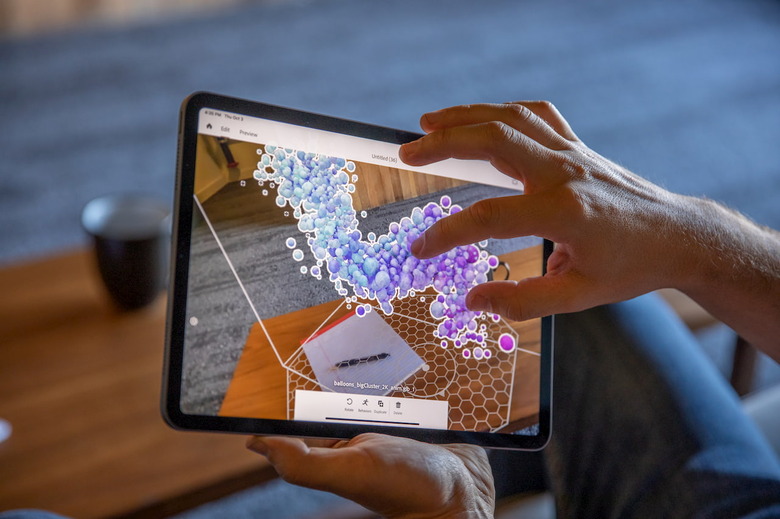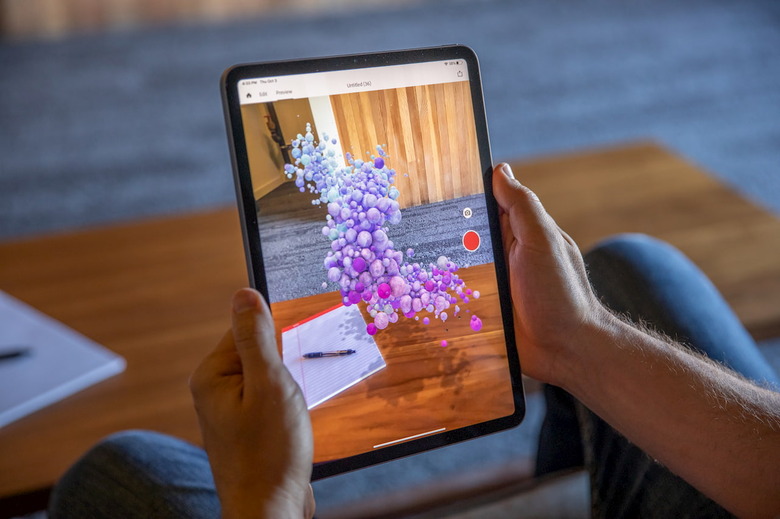Adobe Aero kicks off an augmented reality push on iOS
Adobe MAX 2019 has brought us a lot of new product announcements, but one of the most surprising is undoubtedly Adobe Aero. With an increasing number of companies looking toward augmented reality, Adobe has decided to make a push of its own. Aero will be the way it does that, offering artists and designers AR tools that, like most of the products Adobe offers these days, are integrated with Creative Cloud.
Adobe Aero is launching in version 1.0 today, surprisingly enough – no extended beta test and far off release date like we saw with Photoshop for iPad and what we're now seeing with Illustrator on the same platform. Adobe says that the app allows artists to create AR scenes without needing to code anything; it's all done via the UI, with a tutorial to guide users through the process the first time they attempt to set up a scene.

As with most AR apps, you'll place virtual objects in real world shots, and you'll be able to add triggers so other users can interact with those objects when viewing your project. Here's where Creative Cloud gets to flex a little muscle, as you'll be able to import CC assets into your Aero projects, whether those come from Photoshop or Adobe's collection of stock 3D assets. You'll be able to share projects through social media – a common thread throughout CC apps – or through the Aero app.

Though Aero is launching in version 1.0 today, Adobe says it will continue building out the app with feedback from the community. This launch seems to be a way for Adobe to get its AR tools out in the open and see what happens when developers and artists get their hands on them. In other words, Aero sounds like something of an experiment for Adobe.
For now, the app is exclusive to iOS devices, though it appears to be compatible with iPad and iPhone. It won't be that way for long, with Adobe planning to hold a private beta test for Aero on desktop. We also imagine that Aero will make its way to Android before long, though Adobe hasn't said anything about potentially supporting Google's OS just yet. We'll see what happens from here, and we'll let you know when we hear more.
